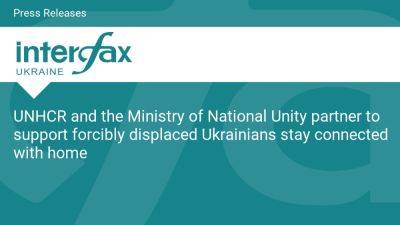Home
Exclusive interview of Matthias Schmale, Assistant Secretary-General, Resident and Humanitarian Coordinator in Ukraine, to Interfax-Ukraine News Agency
Text: Valerie Proshchenko
The third anniversary of Russia's full-scale invasion of Ukraine is approaching. What has the UN done to help Ukrainians suffering from the war?
There has been a significant scale-up of the humanitarian response since February 2022, consisting of several elements. A big focus has been supporting people along the front line, with numerous so-called interagency convoys bringing life-saving assistance: non-food items, shelter kits and food. The UN has over 600 partners doing this work. More than 400 are Ukrainian organizations, some of which are local volunteer groups helping people along the front line, and slightly larger organizations helping people move.
In 2022, more than US$4 billion came into the country for humanitarian response, in 2023, it was $2.6 billion, and last year $2.2 billion. And a big part, especially in the first year, has gone into a front-line response.
A second element is helping people who have left the front line, supporting evacuations, and accompanying especially vulnerable people on the move.
This has included helping people in transit centers, and there has been considerable support also in what we call collective centers. In 2024, 32 partners provided support in 1032 collective sites. I should also mention cash assistance that has been provided to people. Often in the transit and collective centers, there is a three-month multi-purpose cash payment, so people can support themselves.
A third area has been the response to attacks. I've seen many impacted sites myself, mostly along the front line. Again, a








